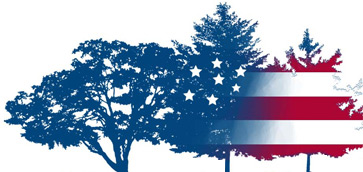Independence Day is an opportunity to acknowledge and honor the selfless people who have chosen public service as their profession. In today’s world Public Leaders have significant responsibilities in the areas of sustainability and addressing climate change issues for their communities.
For decades Rachel Carson and Al Gore haven been outspoken. courageous, Public Leaders who awakened all of us to the importance of protecting our environment and the need to build sustainable practices into our daily choices.
Rachel Carson began her career with the U.S. Fish and Wildlife Service as an aquatic biologist. She is best known for her groundbreaking book Silent Spring in 1962. Her passionate book was arguably the impetus behind the environmental movement and the elimination of chemicals which ended up in food. She also wrote the 1951 bestseller The Sea Around Us, and two subsequent books The Edge of the Sea and Under the Sea Wind, which explored oceans and aquatic life from the shores to the depths of the ocean. Ms. Carson died in 1964.
As a freshman congressman, Al Gore became involved in environmental issues when he held the “first congressional hearings on climate change and co-sponsored hearings on toxic waste and global warming in 1976. He wrote his first book on environmental issues in 1992—Earth in the Balance: Ecology and the Human Spirit
During his long public sector career, he strongly pushed for international conferences to bring together world leaders to create long term awareness and change on environmental issues. In 2013, Gore became a vegan. He maintained that the growing meat intensity of diets across the world is one of the issues connected to the global environmental crisis, not only because of the carbon dioxide produced but because of the water consumed in the process. His award winning books and films An Inconvenient Truth and the sequel An Inconvenient Sequel: Truth to Power document his long term efforts to raise awareness of climate change and the challenges it will create for public leaders, communities, and economies all over the world.
“Sustainable Leadership” is the Public Sector Consortium’s definition of leadership in any sector. It is “someone who is committed to accomplishing their mission and protecting and sustaining the societal resources we all depend on to thrive.” As Systems Thinking public leaders we have a responsibility to have the courage and foresight to anticipate future events and be proactive. Having a structural understanding of any system can help leaders practice foresight and appropriately intervene on behalf of the public good. Click here to read more about the article entitled Sustainable Leadership Practices a new model of excellence for all leaders. It appeared on the social media platform Thrive Global in 2017.
“The failure (or refusal) to foresee may be viewed as an ethical failure; because a serious ethical compromise today (when the usual judgment on ethical inadequacy is made) is sometimes the result of a failure to make the effort at an earlier date to foresee today’s events and take the right actions when there was freedom for initiative to act.”
We at The Public-Sector Consortium (PSC) strive to bring new skills and practices that help all of us make changes for the better within municipalities, states and the federal government. Our goal is to help leaders learn how to re-invent and improve systems while raising the bar on performance excellence.
Please take a moment to share our work with others who may be interested in the development of public leaders. Your efforts in reaching out and broadening our base will have an exponential impact on our success. You can find more information and testimonials about the work of the PSC on our website, and follow us on Twitter or connect on Facebook. We would be pleased to connect with you in these forums.
Thank you for all you do for public service at whatever level of public service in which you work. We are proud to work with such skilled and dedicated leaders.
With gratitude,
Georgie Bishop, President
Public Sector Consortium

